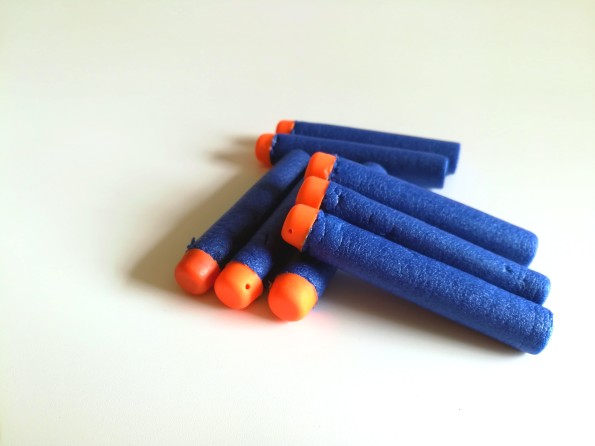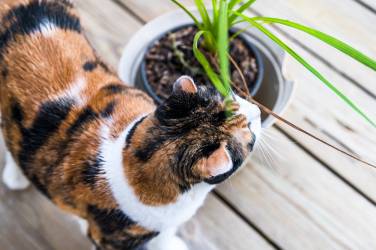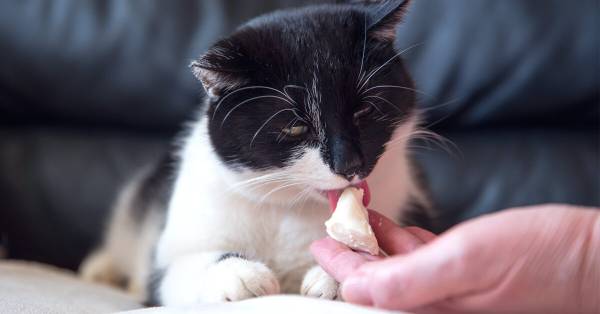
Connect with a verified veterinarian in minutes. Licensed vets are available 24/7 to answer your questions. No need to worry about your furry family member.
Nerf Darts have become very popular with kids! While the toys are great for kids, what about your cat? Are Nerf Darts dangerous if a cat eats one?
Has your cat eaten a Nerf Dart? Are you worried the Nerf Dart will make your cat sick? If so, then you’ve come to the right place. We understand it’s scary when your cat eats something he shouldn’t have.
In this article, we’ll take a look at Nerf Darts and whether or not they can make your cat sick. Let’s get started!
What are Nerf Darts?
Nerf Darts are shot from a Nerf Blaster, which is a toy gun made by Hasbro. The darts are made of foam, which is solid but spongy. The Nerf projectiles can fly up to 85 ft and are safe when used as directed. However, there have been cases of pets, including dogs and cats, suffering severe injuries after being hit with the darts.
But what happens if a cat eats a Nerf Dart? Will the Nerf Dart make the cat sick?
Nerf Darts & Cats
Unfortunately, Nerf Darts can make a cat very sick. If the cat chews the dart up into small pieces, there’s a chance the pieces will come out in the cat’s poop. Or the cat may vomit up the pieces.
However, it’s also possible for the Nerf Dart pieces to become lodged within the cat’s digestive system. If this should happen, the dart pieces could cause an intestinal blockage. This can be a life-threatening emergency; if not treated promptly, the blockage can cause death.

Review symptoms, medications & behavior to keep your pets healthy with a Vet Online in just minutes.
Ask a Vet Live NowSymptoms of Intestinal Blockage in Cats
You may notice these symptoms if your cat has eaten a Nerf Dart:
- Vomiting
- Dehydration
- Diarrhea
- Constipation
- Abdominal pain and swelling
- Lethargy
- Loss of appetite
If you notice any of these symptoms in your cat, then call the vet immediately. This is a medical emergency. It is important to remember that your pet may not have these symptoms immediately. Therefore, it is very important to contact your veterinary clinic immediately if you think your cat may have eaten this toy.
Treatment of Intestinal Blockage in Cats
When you get to the veterinary clinic, your veterinarian will perform a full physical examination of your cat. They may recommend running some lab work (blood tests) and x-rays (or an ultrasound). The images will help the vet see where the blockage is located.
Depending on where the blockage is, the vet may choose to use an endoscopic procedure to remove the dart’s pieces. However, it’s also possible your cat will need emergency abdominal surgery. The surgery will be done to remove the parts of the Nerf Dart and to repair any damage the Nerf Dart caused to the cat’s digestive tract.
The prognosis for the cat will depend on the severity of the obstruction and how soon it was treated. The good news is that your cat has a good chance of making a full recovery if they receive prompt veterinary care after eating a Nerf Dart.
Connect with a verified veterinarian in minutes. Licensed vets are available 24/7 to answer your questions. No need to worry about your furry family member.

Evie Moloney, RCVS
This article has been reviewed and approved by an independent Veterinarian: Evie is a vet surgeon who graduated from the University College Dublin, which is the only university offering the veterinary medicine degree in Ireland. She really enjoys surgery and has also worked as an emergency and critical care vet. She is passionate about sharing education about preventative health care for pets, especially the importance of regular dog and cat teeth brushing at home. She also enjoys helping owners find practical solutions for keeping pets as comfortable as possible while living with conditions such as arthritis. When not working, she enjoys hiking and swimming.
Review symptoms, medications & behavior to keep your pets healthy with a Vet Online in just minutes.
Ask a Vet Live Now




